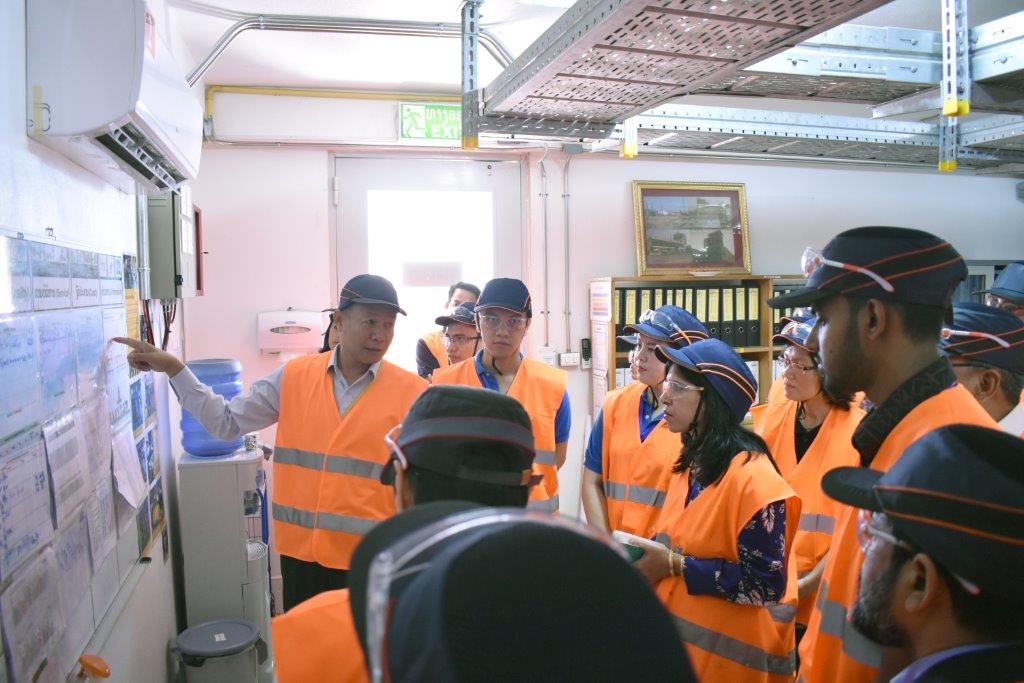
Select Page
If “you are what you eat,” make food as safe as possible.
 Safe, nutritious food is a basic requirement for human life. However, foodborne hazards like contamination with pathogenic bacteria, viruses, parasites, and harmful toxins and chemicals can cause diseases ranging from digestive tract infections to cancer. Children, the elderly, and those with preexisting medical conditions are particularly at risk. The WHO conservatively estimates that 600 million, or almost one in 10 people worldwide, become ill each year after consuming contaminated food. Apart from individual suffering, unsafe food overloads healthcare systems and slows economic, trade, and tourism activities. Opportunities in global value chains are lost to enterprises unable to meet international food safety standards, hampering sustainable development.
Safe, nutritious food is a basic requirement for human life. However, foodborne hazards like contamination with pathogenic bacteria, viruses, parasites, and harmful toxins and chemicals can cause diseases ranging from digestive tract infections to cancer. Children, the elderly, and those with preexisting medical conditions are particularly at risk. The WHO conservatively estimates that 600 million, or almost one in 10 people worldwide, become ill each year after consuming contaminated food. Apart from individual suffering, unsafe food overloads healthcare systems and slows economic, trade, and tourism activities. Opportunities in global value chains are lost to enterprises unable to meet international food safety standards, hampering sustainable development.
As international trade in food products increases, consumers are more aware of safety issues and demand transparency from the agrifood sector. The spread of mobile devices and social media means that companies can no longer control information concerning food safety incidents. Global quality assurance for agrifood products is a requirement for exporters. Each government has its own definitions of food risk as well as safety, regulatory, and monitoring standards. Governments are trying to harmonize those standards to maintain the flow of goods through global supply chains. Advanced technologies now coming into widespread use can lower risks of food-borne illness by controlling pests, identifying causes, and providing traceability throughout supply chains.
A workshop on Food Safety Regulations and Related Issues, held in Vientiane from 16 to 20 December 2019, was organized by the APO and Lao National Productivity Organization (LNPO) to examine food safety regulation trends and discuss examples that strengthen national control systems for better food safety, worker productivity, and public health. The 20 participants from 12 APO member countries were guided through the technical sessions and discussions by three international resource persons from India and Singapore.
Although focusing on different aspects, participants’ similar backgrounds in food safety allowed agreement on recommendations for improvement, which included: 1) Simplify the language in GAP and other relevant documents for wider adoption. 2) Develop an information exchange mechanism for mutual learning about food safety issues and success stories among APO members. 3) Overcome the lack of food safety expertise in many countries through more training opportunities and greater interagency cooperation. It was pointed out that while government efforts were directed mainly at the organized agrifood sector, the majority of food-related problems occurred in the unorganized sector or at farm level. Resource constraints mean that these do not receive sufficient attention and that traceability systems are in their early stages in some APO members. The current and future effects of climate change on food safety should also be addressed without delay. Another point to be considered is the impact of traditional practices and sociocultural heritage on food production, consumption, and preferences.
The workshop included a visit hosted by Lao Brewery Co., Ltd., which enjoys a more than 80% share of the beer market nationwide. A company director explained its operations in detail, especially how quality is maintained and safety regulations followed throughout its supply chain.
The informative visit to Lao Brewery and its stringent quality standards impressed Dr. Shalini Chakraborty, an Indian participant, who also described the success stories presented during the workshop as “eye-opening.” Participant from Pakistan Wiqar Ahmed referred to learning about different food safety regulations as “the need of the hour,” particularly from the commercial/export-oriented viewpoint, and complimented the APO and LNPO for holding the helpful workshop. Another Pakistani attendee joined others in appreciating the “highly qualified, experienced resource persons for their contributions” and for being very interactive throughout the five days of sessions.
Among workshop outcomes, the APO expects that capacity-building activities including training of others in food safety measures will be conducted by participants based on their draft action plans. A better understanding of the latest food safety regulations will assist in better compliance, which will in turn enhance public health, add value to agrifood businesses, and increase farm productivity and rural incomes.